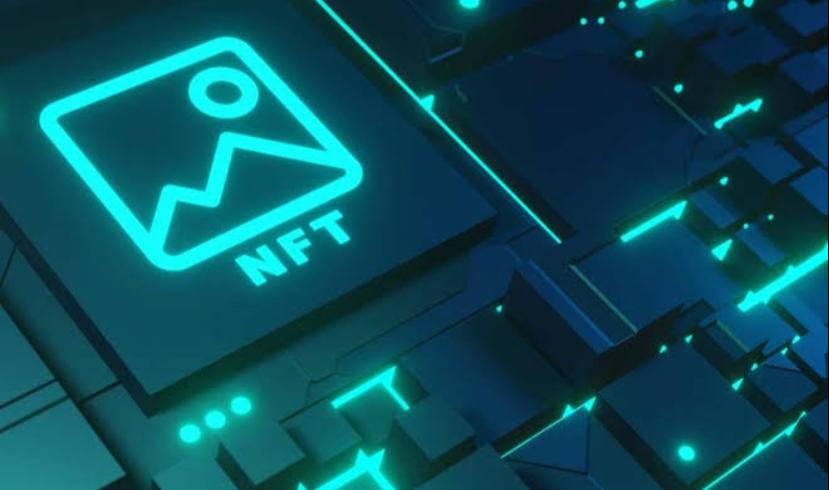Sunidhi Kashyap and Shagnik Mukherjea are second year law students at RGNUL, Patiala.

NFTs, Securities Law and the Folly of Unfounded Hype
With the acceptance and rapid growth in the demand and supply of NFTs, tech-savvy consumers are now presented with a variety of potentially lucrative investment opportunities. Nevertheless, this increased interest in NFTs also results in increased scrutiny from regulators and government officials, and thus, it is imperative to outline and analyse their legalities before bidding. As the foremost securities law in India, the Securities Contract (Regulation) Act,1956 (SCRA), does not make exhaustive claims with regards to the inclusion of NFTs and their rules and regulations regarding exchanges. And as there is no NFT-specific legal framework, the industry continues to grow in limbo with much of its discourses till left undecided. Such a legal dilemma tends to lead to two predominant schools of thought, with one side of the house viewing NFTs as derivatives and thus deserving of a ban under the SCRA, while the other side believes that NFTs and their status quo of smart contracts are perfectly legal as they are.
If NFTs were to be classified as derivatives, NFT exchanges in India would essentially face a complete ban, as outlined in Section 2(ac) of the SCRA which defines derivatives as an investment contract that derives its inherent value from its underlying assets or securities. The classification of NFTs under such a definition would invite the application of Section18A of the SCRA, which states that derivative securities can only be traded on recognised stock exchanges and not on virtual platforms. Such a drastic change in Indian regulation would effectively make the vast majority of NFT exchanges outside of Indian jurisdiction completely inaccessible to Indian citizens.
Moreover, due to NFTs’ inherent non-fungibility principle, they differ from other securities and investment scenarios, which is why pigeonholing up-and-coming commodities into archaic laws is utterly counterintuitive in its expansion opportunities. NFTs that merely serve as certificates of authenticity for multiple variations of existing assets have no common denominator with the definitions of derivative securities as outlined in the SCRA. NFTs would, in such cases, be governed by the principles of contract law instead of securities law. Specific cases, however, which allow NFTs to offer ownership stakes in existing assets, could be considered as derivatives under the SCRA. Regardless of these distinctions, numerous legal questions, as well as the political and economic ambitions of the Indian Government, remain unresolved, further adding to the legal precariousness of the NFT industry in India.
Similarly, the NFT industry in the US does not have a specific legal framework but continues to experience tremendous growth, leading the world in NFT exchanges. Despite providing a non-exhaustive list of instruments that are classified as securities, the US Securities Act, 1933 fails to define the term. In this regard, the Howey test, initially outlined in the 1943 SCOTUS case of SEC v. W. J. Howey Co., lays down the legal requirements of an investment contract, which are: (1) investment of money, (2) in a common enterprise, (3) with a reasonable expectation of profits, and (4) to be derived from the entrepreneurial or managerial efforts of others. The Securities and Exchange Commission has also opined that crypto tokens, coins, or other digital assets issued on a block chain could fall under the ambit of an investment contract as outlined in the Howey test. However, the contention in the context of NFTs is specifically with the third and fourthpoints. As outlined in the SEC petition, the primary issue in analyzing the classification of digital assets is whether there exists a reasonable expectation of profits. NFTs that act as collectables and certificates of authenticity, as illustrated, imply no expectation of profit. In contrast, NFTs that offer royalty-based rights or revenue sharing options would almost certainly be considered investment contracts under the Howey test. Likewise, the term ‘managerial effort’ remains largely undefined, except for the SEC’s investigation in the case of the now-defunct company, The Dao Barring. However, for cases specific to intellectual property rights, it is unlikely that there is much difference in the influence held by a traditional art dealer in comparison to that of the NFT’s seller while purchasing digital art or collectable NFTs. Traditional market forces and their subsequent impact on asset valuations, however, do not constitute profit expectations in the same way that the legal prerequisites of ‘managerial efforts’ do. And thus, until more definitive guidelines regarding the regulation of NFTs are released, the industry will continue to remain in limbo, and traders and investors are cautioned to pay particular attention to circumstantial evidence and legal technicalities, lest we fall victim to unfounded hype.
Conclusion
With the advent of the digital wave, the NFT industry has exposed the inadequacies and limitations of the contemporary legal system, with archaic and sometimes, counter intuitive law stifling progress and advancement. Leaving the digital market unregulated and unchecked would entail forfeiting tremendous opportunities for progress and development in the sector. An absence of legal recognition due to the lack of tangibility cannot serve as a reasonable justification for the exclusion of NFTs from the Doctrine of First Sale. A Digital Doctrine of First Sale, on the other hand, would be far more responsive and adaptable to the intricacies of blockchain technology. Similarly, the Indian Securities Act of 1956 would require significant amendments in its definitions to permit the classification of digital commodities like NFTs, and unless such changes are passed, pigeonholing innovative sectors in archaic laws actively hinders development and progress. And as the global NFT market continues to grow and expand, it is high time India made an offer that can’t be refused.
